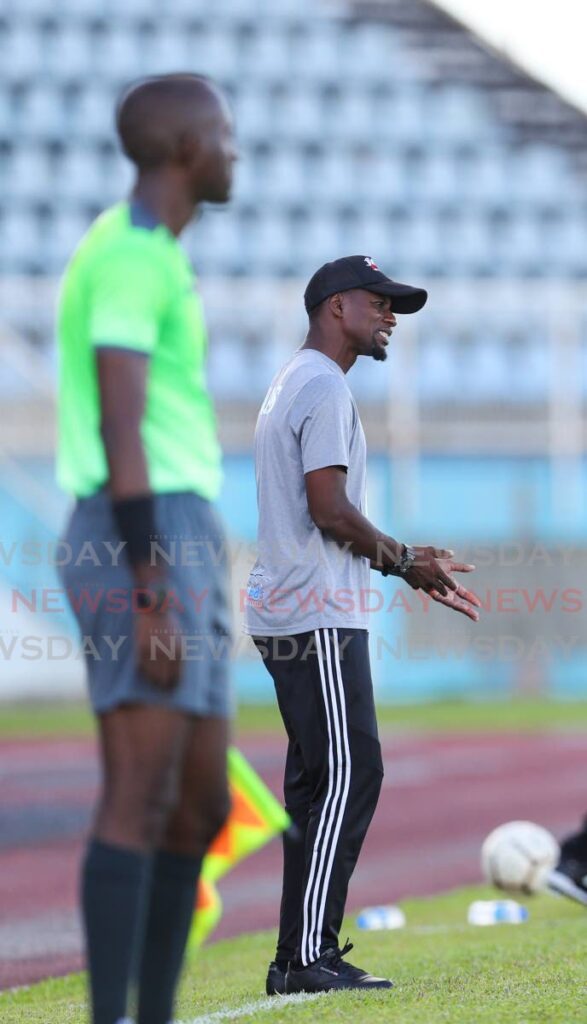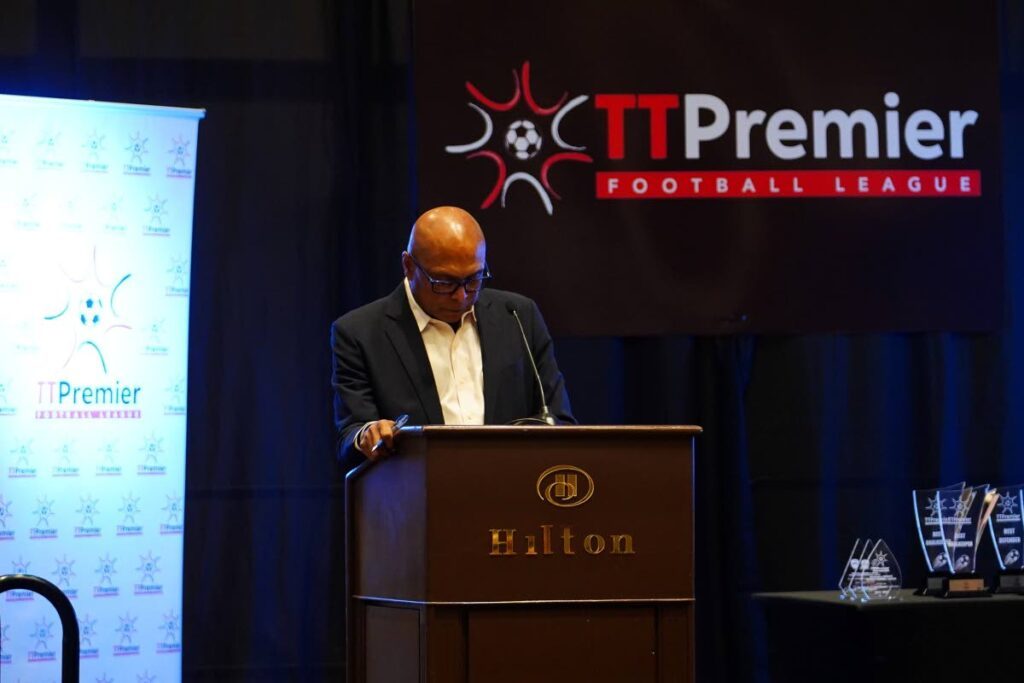Jelani Beckles
SPORT is not just a game. It’s an industry – a billion-dollar industry.
And in sport there are games within the game, and players not on the team with more to win and lose than those competing.
Fans are not the only ones celebrating wins: so are gamblers, seeking to capitalise on a good or bad performance.
Make no mistake, sports betting has become an intrinsic part of the modern world. With the ability to reach most of the world with the click of a button, online betting has taken off, and cellphone apps make gambling quicker and easier than ever.
No longer is it a dirty secret whispered about on the sidelines. In fact, betting companies are now corporate sponsors and partners with some of the most prominent sports leagues, media networks and teams in the world.
>
In 2023, the global sport industry was valued at around US$485 billion. In that same year, the gambling industry reached a value exceeding US$540 billion, according to European Business Magazine.
In 2023, ESPN partnered with Caesars Entertainment, the Las Vegas company, to provide sports betting content. Top NBA reporter Shams Charania previously partnered with online gambling company FanDuel to provide content.
In 2023, Dream11, an Indian fantasy sports platform that pays cash prizes, became India’s cricket team’s lead jersey sponsor in a three-year deal. Dream11 offers both free and paid contests, and according to the Supreme Court of India, it is not a gambling company, as winning is based on skill, and not gambling.
We don’t have to look far for that company’s’ involvement in sport, as right here in TT, Dream11 has become the title sponsor of a T10 cricket league. The company has also sponsored T10 leagues in Guyana and St Lucia, to name a few.
In an interview with Newsday on October 15, a former West Indies cricketer, who wished to stay anonymous, said he was surprised by how betting companies have infiltrated the game.
“It’s a bit concerning with these betting companies getting into the sport,” he said.
He said punters who have made bets and lost take out their frustration on the players.
“A lot of players now are being bashed and criticised publicly. I myself have had my fair share of being criticised playing for (a Caribbean Premier League (CPL) franchise). These people bet so much money, and when things don’t go their way, they criticise the players publicly.”

>
He said with social media being so prevalent now, access to players is much less restricted.
US NBA superstar Kevin Durant, who plays for the Phoenix Suns, has regularly complained that betting was affecting how people consume the game. In a post on X (formerly Twitter) on November 20, 2023, he said, “When I get ya paid, u don’t DM (direct message) me and send a small percentage to my cashapp but when them parlays don’t hit, I’m every name in the book. Yall ain’t real.”
A parlay is a type of bet in which the performance of multiple teams or players is combined on one ticket, thereby increasing the odds and the payout if successful.
The experienced cricketer said sports administrators are mainly concerned with finding funding, and do not care where it comes from.
“It’s a bit concerning. But on the other hand you have to understand because these people are getting the sponsorships, and because they get a lot of money they go for it, it doesn’t matter who it is sponsoring them. It’s a kind of catch-22.
“But it’s a bit disheartening for players knowing they go out there every night and things don’t go all their way all the time. They (punters) don’t really care about what the players might be going through, what sort of mindframe they are in. For instance, today, all the (West Indies) batters failed, after humiliating Sri Lanka in the first (T20) game; now they might not even score 100 runs.”
Asked if he could have envisaged betting companies getting so involved in sports, he said, “Never, never, never. That is the last thing you would think about. But that’s just the reality now.”

He believes more transparency is needed in the relationships with companies that earn revenue from players’ performances.
>
“It’s difficult. The players are the one who feel the brunt of it. The ones who hold the tournament, they get the money.
“Dream11 has so much T10 tournaments going on in the Caribbean right now. We know the boards in the Caribbean are getting, but we don’t know how much money they are getting, what the sponsorship is like, we don’t know what Dream11 getting out of it.”
In sport, wins and losses are determined by the skill of athletes, executing a game plan, tactical adjustments, and, sometimes, just pure luck. With millions and billions of dollars on the line, some people like to make their own luck by rigging the game. Match-fixing is viewed as one of the most egregious crimes in sport.
In a documentary about Chennai Super Kings’ two-year suspension from the IPL over a fixing scandal involving CSK officials, Indian cricket legend MS Dhoni said, “The biggest crime that I can commit is not a murder, it is actually match-fixing.”
But match-fixing is not the only problem. Spot-fixing has also become prevalent, with more options for people to bet other than the outcome of a match: a wide in the first over; a no-ball; a yellow card; a red card in the first half; scoring less than ten points in a basketball game.
In May 2024, the International Cricket Council (ICC) banned former West Indies and Leewards cricketer Devon Thomas for five years for match-fixing. He also failed to report approaches by illegal bookies in the CPL and Abu Dhabi T10.
In November 2023, the ICC banned Jamaican and ex-WI cricketer Marlon Samuels for six years for breaking its anti-corruption code. Samuel was found guilty of failing to report approaches and gifts.
Sometimes, all an illegal bookie might want is inside information about a team, an injured player, or a game plan. This key information would influence the way someone might bet.
“I have been approached in a couple instances,” the ex-Windies cricketer told Newsday. He said he reported it to the ICC forthwith.
>
“The thing is, we have to report it as soon as possible. The interrogation that you get from the ICC Anti-Corruption Unit (is rigorous). When they finish speaking to you, and that interrogation, you feel that you did something wrong. It’s not an easy thing to go through.”
He explained how illegal bookies try to get players to do their bidding.
“These people find your numbers, they go on all platforms on the internet and message you. Sometimes people message you and you don’t even see who it is. Sometimes you don’t even see the message, as it goes into the your spam.”
Former national footballer Travis Mulraine said football is not immune to the issue.
In September 2023, Mulraine, then coach of Guaya United, alleged fixing in the TT Premier Football League (TTPFL) tier two. He resigned as coach in January 2024.
He told Newsday on October 29, “You would be amazed to know, word had come to me back when I was dealing with the issues at Guaya that betting was taking all the way in South Africa on the TTPFL league.
“This is a worldwide syndicate, and the real danger in this is that when a player is in the grip of these bookies, there is no turning back. That player could end up on the national team, a World Cup qualifier playing against USA: he receives a phone call – ‘We need a goal in X minute.’
“So that is a huge danger that is facing our football.
“It has not been happening only recently. Since 2009 I have been hearing that players were on the take.”
>
In 2019, FIFA banned two TT players – Keyeno Thomas and Karlon Murray – for life for trying to manipulate the game for betting purposes.
Mulraine said the game is at risk, especially in countries where football salaries are not high.
“I think because of the covid and the decline in economic situation in Trinidad football, players are being offered more money to throw one game that they would make from their month’s salary.
“It’s a no-brainer for a player with no scruples.
“But when they do that they open the Pandora’s box, because there’s no turning back.”
He agreed with the cricketer’s feeling that the money offered by betting companies to partner with leagues may be too good an offer to refuse.
“Money talks. Money makes the world go around.
“If you have a betting company offering millions to a league where there is no other avenue to accrue that kind of sponsorship, what would you do? We are in between a rock and a hard place where this is concerned.
“This is where companies like KFC and Coca-Cola must exercise their corporate social responsibility by giving back. Because a lot of players eat KFC, a lot of players drink Coca-Cola.”
He said fixing in local football would “destroy our game.
“We know the society we live in – the level of corruption in high places.If we allow that to seep into sport, brother, then it’s all over.”
Former TTPFL CEO Colin Wharfe acknowledged receiving multiple reports of match-fixing in the league, but said there was no concrete evidence to convict anyone. He said the TTPFL also lacked the infrastructure to investigate these reports properly. He said FIFA contacted the TTPFL about the issue and an integrity officer was assigned to handle it, but the absence of evidence was a hindrance.
Wharfe, who unsuccessfully contested the TTFA presidency in April 2024, resigned as TTPFL CEO on July 1.
He said during his tenure, a few betting companies – local and international – contacted him about potential business arrangements.
“They were supposed to provide a proposal,” he said.
But, he said, because of the TTFA elections, many adopted a wait-and-see approach.
He believes legal betting has been embraced to counter the flourishing illegal version.
“However, there are leagues, like the English Premier League, that aren’t completely comfortable with it and restrict the placement of advertisements.
“Legal betting is the name of the game. It’s just the reality of the world.”
TT Cricket Board (TTCB) president Azim Bassarath agreed. Responding to questions from Newsday, he said, “Sports and betting have a longstanding relationship, with betting playing a significant role in the sports industry, influencing fan engagement, sports revenue, and even regulations.”
He said the TTCB’s partnership with Dream11 provides “another revenue stream” for the local body and magnifies the talents of local cricketers for the international market.
Nevertheless, Bassarath said, “Balancing sports betting’s popularity with ethical safeguards is complex, but protecting the integrity of sports, and the well-being of participants and bettors, is essential for sustainable growth in this industry.”

